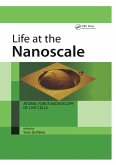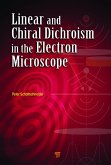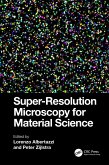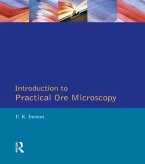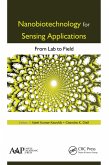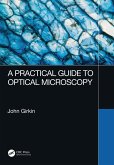Proceeding from basic fundamentals to applications, this volume provides a comprehensive overview of the use of AFM and related scanning probe microscopies for cell surface analysis. It covers all cell types, from viruses and protoplasts to bacteria and animal cells. It also discusses a range of advanced AFM modalities, including high-resolution imaging, nanoindentation measurements, recognition imaging, and single-molecule and single-cell force spectroscopy. The book covers methodologies for preparing and analyzing cells and membranes of all kinds and highlights recent examples to illustrate the power of AFM techniques in life sciences and nanomedicine.
Dieser Download kann aus rechtlichen Gründen nur mit Rechnungsadresse in A, B, BG, CY, CZ, D, DK, EW, E, FIN, F, GR, HR, H, IRL, I, LT, L, LR, M, NL, PL, P, R, S, SLO, SK ausgeliefert werden.



